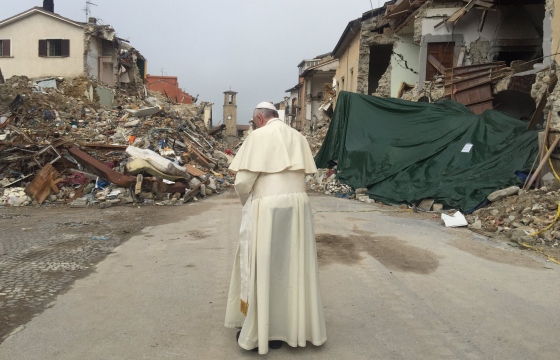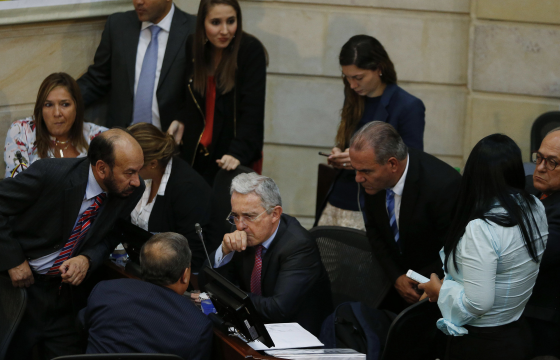The vote against a peace deal with the Farc Communist rebels in Colombia is an opportunity for both sides to listen to each other and for those who voted 'Yes' to be reconciled with those who, for social, political, institutional and ethical reasons, think differently, the Catholic Church in the South American country has said.
Since the No vote Colombian president Juan Manuel Santos has appointed a team of senior government officials to launch talks with the opposition on changes to a peace deal with the Farc rebel group. Former President Alvaro Uribe (pictured), who was the main force behind the No campaign, has appointed three negotiators to hold talks with the government, according to the BBC News website.
Meanwhile, the Colombian Catholic bishops conference called for "a profound reflection on the current situation" in Colombia. “There is no room for feelings of victory or defeat," a statement by the conference said. "Instead let us turn this moment into a great opportunity to work together for reconciliation and agreement among Colombians."
Fr Francisco de Roux, a former provincial of the Colombian Jesuits and a leading advocate for peace, said that supporters of Yes “were not fighting for the political future of President Santos nor against the political future of Uribe, nor were we fighting for the political future of the Farc".
"We were fighting to overcome the spiritual crisis of the country that plunged us into a destruction of ourselves as human beings," he said. "We dreamed that we would take a first step by approving the negotiations with the FARC, but we didn’t succeed in our aim. Certainly because we too, being Colombians, are part of the crisis."
Uribe, who served two terms as president between 2002 and 2010 and was barred by the constitution from standing a third term, remains a popular figure in Colombian politics, particularly with the middle and ruling classes. He argued that the Farc rebels who committed serious crimes should serve prison sentences and some of the Farc leaders should be banned from politics.
The peace deal was signed last week after nearly four years of negotiations, which were held in the Cuban capital, Havana. No voters baulked at some of the terms of the agreement which included allowing more lenient sentences, stipends for some rebels, help in starting up businesses and guaranteed seats in the Chamber of Representatives for two terms.
“We have to accept with realism and humility that we have to re-examine our positions," De Roux said. "Maybe we simply did not regard ourselves as part of the problem, and precisely because we are part of the problem, of the crisis, we have an even greater responsibility to be part of the solution.
“This is the moment to listen to each other, understand each other, and to be reconciled with those who, for social, political, institutional and ethical reasons, think differently. We have to accept each other, including our differences. We have to re-examine on all sides what each of us has to change, so that we may all meet with dignity in a peace that brings tranquillity to all.
“We will maintain and redouble the enthusiasm with which we have devoted ourselves to the cause of peace, but we will do so bringing in the others, accepting their different understandings, listening to their arguments, fears and anger. We must take a further step, to be the human beings that we all are.”




 Loading ...
Loading ...